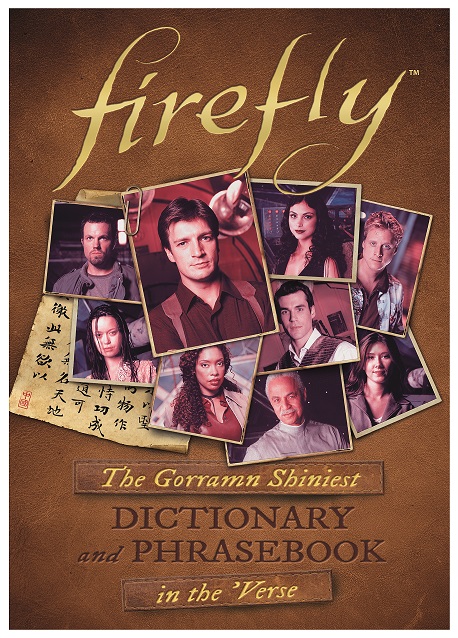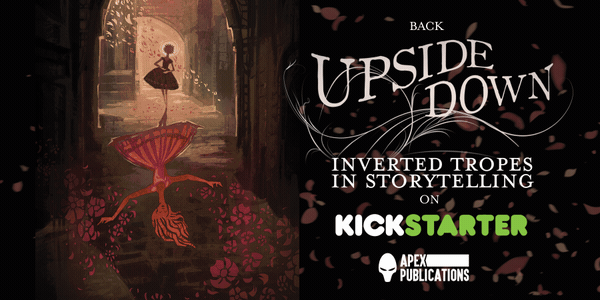
One of the techniques I feel very strongly about when writing alternate history which, in many ways, is a component of many games, stories, and reference materials I write, is to take an investigative approach to research. There are many reasons why I feel this is necessary, and much of my thoughts on the subject come from the mistakes I’ve made or from the realizations I’ve come to over the years as I’ve delved into this approach on many occasions, for many projects.
Often, in games this approach is crucial because the point of a game is to be immersed in a world where you, as the player, make choices for your character either by yourself or in a group with the guidance of a games master. In both, however, the more specific the details, the better the readers/players are able to submerse themselves in a world similar, but different, from our own. The ability to be inspired by historical events is also impacted by popular media, what you’ve learned in school, what you’ve internalized, etc. Thus, sometimes a writer’s research might turn up facts that are often misrepresented, which can push narratives and settings into new directions for the reader–but have been there all along. “The Aliens Built the Pyramids” is a common example, and the idea that ancient peoples were less intelligent and less capable than people today, often reduces their accomplishments and their humanity.
As another example, I’ve written about the Salem Witch Trials. Did you know that Salem Town and Salem Village were two separate, but nearby, places? Or that this unusual event occurred at the tail end of the so-call witch hysteria in Europe? Or that prisoners had to pay for their own room and board which often bankrupted them? Or that the female Puritan believers were often taught to read the Bible, but not to write? Or that the supernatural was blamed for everything that went wrong, even crops failing? Of course, you might have known all of those things (and more) already, but my point here is that stories often condense facts in order to best fit the plot and characters or, for a game, its setting and the potential of telling stories. Instead of having Salem Town and Salem Village, sometimes we’ll see representations set in “Salem” to simplify the setting. I didn’t do that, myself, but it’s not uncommon to see a hyper focus on a specific aspect of the Salem Witch Trials as opposed to the broader overview due to budgetary, time, and narrative constraints. This can result in the same story being told over and over again, which can hurt writers, editors, and designers because it forces us to do something extraordinary in order to bring a fresh perspective.
I’m of the mind that conducting research benefits writers and designers in many ways. It allows you to avoid repeating the same, tired tropes and presents you with better choices to tell a more compelling story and create better games, because you’ll have more information to work from as opposed to starting with the expectations everyone already shares that stem from prior coverage. After all, there have been many changes in technology which have allowed the facilitation of faster and better research materials than were previously available five, ten, and even twenty years ago, which means the expectation to get the background details is a lot higher, even though there’s also been a substantive rise in the need to produce stories and games more quickly than ever before in order to remain financially soluble. And, of course, even beyond the creative there is the 24-hour news cycle and the constant stream of information begging to be read and no guarantees that what you’re reading is based in fact(1).
But often, investigative research tends to get a bad rap not because it requires time or critical thinking, but because it necessitates the understanding that bias exists. This, unfortunately, can be highly politicized even though the existence of bias really doesn’t have anything to do with politics. It is, simply, how our minds work. Avoiding the acknowledgement of our own personal biases is where research can fall down before it begins, because it essentially means that we have to be open to the possibility that what we know is wrong. This fear typically manifests in an assumption that fiction is all just made up stuff and, if that’s true, then what’s the point of reading and analyzing historical materials for our made up worlds? For others, this might challenge personal beliefs that are held dear, and force uncomfortable thoughts that could bring about a change to the way we think or what we believe. As time passes, however, materials within the historical record will include what we create–games, stories, etc.–and readers are often influenced by alternate history to the point where misinformation becomes true(2), for that is the power of a story. In other words: what we make becomes part of the historical record and public consciousness, especially if our reach is broad. And, that carries with it a certain amount of power that can create both positive and negative effects. Some of these effects can and are mitigated by research.
When the historically-inspired details resonate positively, they can be a force for good because it may encourage people to question what they know, to correct misinformation by thinking more critically about a topic they haven’t before, or to feel empathy for another human being(3). When details reinforce misinformation or stereotypes, however, it can do a great deal of damage, even resulting in the bullying of children(4). The discussions about race or gender or what-have-you, which is also connected to bias, has been attributed to politics and often raises eyebrows for the simple fact that when a claim is heard it isn’t believed. “It didn’t happen to me, ergo I don’t believe it’s true because it doesn’t fit my worldview.” But, I find it sometimes is affected by the idea that non-fiction is written rationally, and those materials are part and parcel to investigative research. That same idea can also be shaped by the trust we do (or don’t) place in our source material and that, too, can be affected by bias as well.
While the idea that non-fiction is written with a rational mind may have some merit to a certain degree, all information is often relayed for a specific purpose of some kind, and its meaning or reception is impacted both by context and how words change meaning over time. An example of this is the discussion related to the term “redskins” and the intersection of that slur and the Washington Redskins logo. The history of the term “redskin”, according to Goddard in that article, evolved over many years. This is just one story why I believe it’s crucial to think critically and research when attempting alternate history. Not only does the meaning of words change over time, but the words we use impact different groups of people differently as well. If we are making games and telling stories to be widely read, we don’t know who that ideal reader or player is anymore–especially in an era where we can digitally distribute works all across the world at a touch of a button. This doesn’t mean, however, that we won’t make mistakes, or that we’ll always make choices based on what happened in history. There is no such thing as a perfect story, game, comic, painting, sculpture, etc.–there will always be flaws, because we are not perfect. However, for myself I feel that the best thing I can do for my publisher and for you (reader, player, etc.), is to do the best job I possibly can–and that means I have to research and work with my editors and fellow contributors to make smart, informed decisions for the final result.
Before I go, I want to give you two tips if you’re interested in investigative research. If you’re researching an event or a subject, try to find sources from multiple perspectives–even advertising!–as opposed to relying on texts written through an anthropological or a victor’s lens. A 360 degree view is hugely helpful, and it might even give you insight and perspective that you never would’ve achieved otherwise. One word of caution, however, if you are researching groups of people you don’t identify or associate with. I’d avoid finding “a” representative and then treat their words as indicative of how that entire group feels or thinks. People will always have a varying degree of opinions, and what you want ideally is a bell curve of perspectives whenever possible to avoid the extreme ends of the spectrum. That can be a challenge, for sure, but I feel it’s also very exciting. After all, you are not only connecting with other people in a unique way through your research, I find that your work will be positively impacted because you’ll make better, more informed decisions that can reach more readers and players. Plus, the more you take this approach, the faster you’ll be able to apply those techniques for your next project.
My second tip is to build a research phase into your project–even if it’s for a couple of hours to find a broad range of sources or time to read them. This phase will also help you manage expectations if you’re working for a publisher, too, because it’ll help frame your internal process so you can still meet your deadlines and boost your confidence knowing that you’ve got a strong foundation to work from. You might decide to do this after you’re done with your first draft, or you might do this before you write your story or design your game to figure out what perspective you’d like to take. Regardless, I strongly suggest not relying solely on other media sources in the same subject matter for your research, because you don’t know if non-fiction sources were used to create them unless you can find the bibliography that was used. That said, I find it’s always helpful to read broadly.
(1) An open letter about Irish slaves is a good example of this, given the coverage was addressed in Scientific American, which is a source given a lot of credence.
(2) Dan Brown’s “The Da Vinci Code” and its effect on religious beliefs comes to mind, here.
(3) For example, you might think about what happened when Alex Haley’s Roots first aired, or the movie Philadelphia, and the resulting conversations that occurred from them.
(4) There is a fair bit of work done, every year, around Halloween to explain why dressing up in feather headdresses and leather shifts hurts Native Americans regardless of tribe throughout the country. And yet, these costumes still exist despite the harm they cause. See also: there are dozens of links on the subject.

 The
The 
